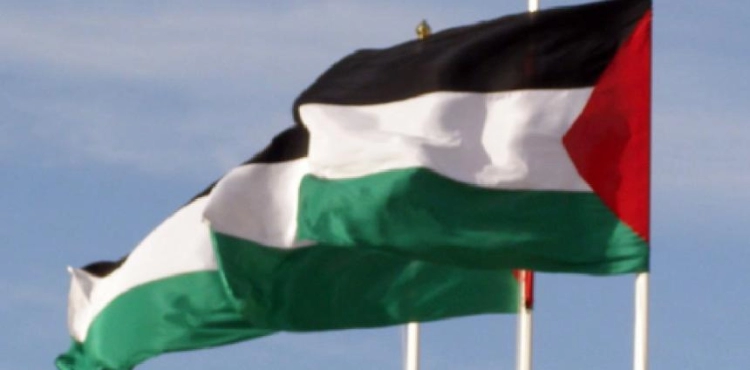JERUSALEM (Reuters) - Israel has decided to cut tens of millions of dollars in tax revenues from its tax revenues to Palestinian products, saying it amounts to the families of Palestinian prisoners held in Israeli jails.
What does this decision mean?
In 1994, Israel and the Palestinians signed the Paris Agreement, which became part of the historic Oslo Accords. The agreement governs economic relations and establishes a customs union between Israel and the Palestinian territories, while maintaining Israel´s control over the border.
Israel imposes VAT and customs duties on goods destined for Palestinian markets passing through Israeli ports before being transferred to the Palestinian Authority.
"These transfers are the largest source of revenue for the Palestinian Authority, accounting for about 70 percent," said political scientist Jihad Harb.
The Israeli Finance Ministry says it collects about 700 million shekels, about $ 190 million in taxes each month on Palestinian imports.
Israel deducts NIS 100 million ($ 28.5 million) to cover various services provided to Palestinians.
The Paris agreement was intended to be temporary, with the two sides working to reach a final agreement, but it is still in force as peace efforts stall. The Palestinian economy remains heavily dependent on Israel.
JERUSALEM - Israeli Prime Minister Benjamin Netanyahu´s government decided on Sunday to hold $ 138 million (more than half a billion shekels) of tax revenues owed to the Palestinian Authority in response to the Palestinian Authority´s financial aid to Palestinian prisoners in Israeli jails.
An amount of $ 138 million will be charged over a 12-month period.
Israel says the amount is equal to what the Palestinian Authority paid last year for "terrorists imprisoned by Israel and their families and released prisoners."
The seizure of funds follows an Israeli law approved in July of the 2018 government.
Netanyahu has vowed to enforce the law after a Palestinian attack on an Israeli.
Israel had previously held funds for the Palestinians, in particular in response to Palestine´s 2011 accession to the United Nations Educational, Scientific and Cultural Organization (UNESCO) as a full member.
The Palestinian Authority provides financial support to the families of Palestinian martyrs and prisoners. The amount is estimated according to the length of years spent in prison.
Israel and the United States say the financial allocations to families of martyrs and prisoners "encourage further violence and undermine the argument of Palestinian President Mahmoud Abbas that he is committed to peace."
The Palestinian Authority did not say how much it was paying the prisoners, but one of the bill´s proponents of Israeli law and its 2018 legislation claimed the amount was NIS 1.2 billion last year.
The PA considers these allowances as a form of social security for families that have lost their main breadwinner and deny any connection to any violence.
The Palestinian prisoners are considered to be fighters against the Israeli occupation, which is more than 50 years old, as are the martyrs who fell in the resistance against the Israeli occupation.
President Mahmoud Abbas said that "the issue of the families of the martyrs and prisoners is our highest priority, and any amount available to us will be allocated to them, and then think about the rest."
Sahar Francis, head of the Dameer Foundation for Human Rights, said that "the allowances paid to the families of the prisoners constitute social insurance to ensure their livelihood."
"There are more than 5,000 Palestinian prisoners in Israeli jails."
"Even without this decision, the Palestinian Authority has already faced a large budget deficit," said IMF Representative Robert Chazide in the occupied West Bank and Gaza Strip.
The International Monetary Fund (IMF) predicted in September that the authority would face a deficit of $ 620 million in 2018.
In 2019, the International Monetary Fund (IMF) predicted more remittances than Sunday and predicted a deficit of about $ 1 billion.
The booking comes at a time when direct foreign aid to the Palestinian Authority´s budget has reached a dramatic state at the height of its decline. Palestinian gross domestic product (GDP) fell from 10 percent five years ago to 3.5 percent.
The United States cut hundreds of millions of dollars in Palestinian aid in 2018.
The financial crisis could get worse if President Abbas sticks to the warning he made on Wednesday when he said, "We will not receive the money minus one penny, and we will never accept it."
"The beginning of a huge financial and economic crisis will affect everyone in the West Bank and Gaza Strip," said Palestinian economic expert Nasser Abdel Karim.
In the midst of the election campaign, Israeli security officials are concerned about the impact of this freeze on the stability of the besieged West Bank and Gaza Strip.
The UN envoy to the Middle East peace process, Nikolai Mladenov, said the freeze and other financial pressure "jeopardized the financial stability of the Palestinian Authority and would essentially offer the security of both Israelis and Palestinians."
According to political writer and analyst Jihad Harb, "Even if the Arab countries provide financial assistance, the crisis threatens to affect the ability of the Palestinian Authority to curb the protests against the Israeli occupation."


![[Images] .. Jerusalemites defy the occupation and open the door of mercy closed since 2003](https://palpress.net/storage/app/uploads/public/ODY/weD/Q4N/thumb_1821_100_88_0_0_crop.webp)









